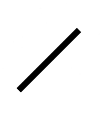Most of the things I do during the day are routine. Whether it’s personal hygiene, responding to messages, buying or eating food, or scheduling myself. I do these tasks reflexively and as fast as possible, without much thought.
And behold, that is where I am making some of the biggest mistakes of my life.
To illustrate, I started to play this game in which you have to arrange various geometric figures into complete lines so they disappear and make room for more objects that keep coming in. You can take as much time as you want before you place each piece. But you lose the game if an object comes in with no room left on the board for it to fit into. I am very good at this game, but I made an interesting observation. I tend to score highly in this game only when I take my time and think carefully about every piece. And place those pieces in a conservative manner to maximize the use of empty spaces. I can literally go on for hours before making a mistake.
But when I start a new game, sometimes I feel a little impatient. I have to play for an hour or more before I reach the level I normally reach. So I start placing the pieces faster to get to my usual level.
However, no matter how skilled I become at this game, when I don’t take the time, I invariably get a piece that surprises me and I cannot place it anywhere. Then I lose the game early on.
What happens when we pay attention?
It became clear that the only way I could do really well at this game was to take my time and think carefully about where I place each piece. Even when it is early on in the game. Even when I have lots of space and time to be able to make a small mistake or two without much consequence.
I see the same pattern in my life. I don’t take the time to think very carefully about every move I make. Especially when my activities seem mundane, repetitive and inconsequential.
For example, I don’t pay enough attention to the foods I buy or allow into my house. And then I wonder why I snack on unhealthy foods when I don’t want to! I need to pay close attention to make sure that everything in my house is pleasing, satisfying and reflects what I want for myself.
Likewise, I don’t take the time to make sure that I do the most important things that I need for optimal health, mindset and my connections with people. In my haste, I forget to thank people. I don’t remember to wish them well on their birthdays. Or I end up regretting saying or doing hurtful things, even though those things didn’t seem that important at the time.
As a result, just as in the game, I get surprised by mishaps that I wish I could have foreseen and avoided. Or I see them after it is already too late and there is nothing I can do about it.
Success via slowing down
As with that video game, good things happen to me when I have patience and take my time to execute every one of my daily activities with calmness and focus, and without distraction.
That’s a challenge for me. I’m both lazy and impatient and want to just get on with it! But that’s where my failure is. I’m not always calm, patient, careful and deliberate in the way that I live my life, or with every decision that I make.
I’m sure that for many, changing this habit may sound onerous or unnecessary. But nothing could be further from the truth.
Life is not a race. It’s an amazing journey, especially when we slow down and remember, every minute, to give everyone and everything in our lives the attention it deserves.










